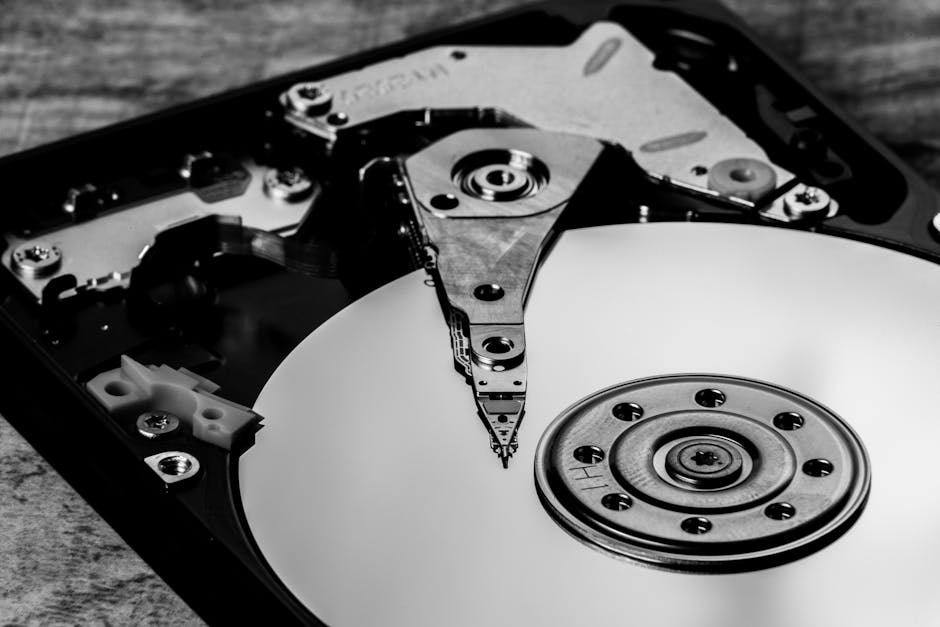Data Protection: Easy Computer Backup Methods
In an age where our lives revolve around digital data, protecting that data is more important than ever. Whether it’s cherished family photos, critical work documents, or your expansive music collection, losing data can be devastating. Fear not! Today, we’re diving into some easy computer backup methods that will keep your data safe and sound. Let’s explore the best ways to ensure your information stays secure. 😊
Table of Contents
1. Why Backing Up Your Data is Crucial
2. Simple Backup Methods You Can Start Today
3. Choosing the Right Backup Strategy
4. Handy Tips for Effective Data Backups
5. Conclusion
6. FAQ Section
Why Backing Up Your Data is Crucial
Imagine waking up one day to find all your important files gone. It’s a nightmare scenario, yet it happens more often than you think. From hardware failures and accidental deletions to malware attacks, the threats to your data are numerous. By maintaining a reliable backup, you ensure that your cherished files can be rescued, saving you from potential heartache and headaches.
Simple Backup Methods You Can Start Today
1. External Hard Drives 🖴
External hard drives are one of the most straightforward and cost-effective methods for backing up your data. Simply plug it into your computer and drag-and-drop your files. They’re portable, easy to use, and offer ample storage space for large data volumes.
2. Cloud Storage ☁️
Services like Google Drive, Dropbox, and iCloud offer seamless cloud storage solutions. They automatically sync your files and provide access from any device with internet connectivity. Plus, cloud storage often includes file versioning, allowing you to revert to previous versions of documents if needed.
3. USB Flash Drives 🔑
For those who need a quick and handy backup option, USB flash drives are perfect. They’re portable, convenient, and ideal for backing up smaller files or for temporary storage needs. Just remember, their smaller storage capacity means they might not be suitable for larger data sets.
Choosing the Right Backup Strategy
When it comes to selecting a backup strategy, consider the amount of data you need to protect and how often it changes. For critical data that changes frequently, such as work files, a daily backup to both an external drive and the cloud might be best. For more static data, like old photos or archived documents, weekly or monthly backups could suffice.
Handy Tips for Effective Data Backups
🔹 Regularly test your backups to ensure you can restore your files when needed.
🔹 Use a combination of backup methods for added security.
🔹 Keep one backup copy offsite or in the cloud to protect against physical disasters like fires or theft.
🔹 Set up automatic backups to avoid forgetting to do them manually.
Conclusion
Backing up your data might seem like a chore, but it’s a small effort that pays off significantly in peace of mind. By implementing these easy computer backup methods, you’ll safeguard your digital life against unexpected loss. Remember, it’s not a matter of if but when something will happen, so start backing up today!
FAQ Section
How often should I back up my data?
Ideally, you should back up important data daily, especially if it changes frequently. For less critical data, a weekly or monthly backup may suffice.
Can I rely solely on cloud storage for backups?
While cloud storage is convenient and secure, it’s best to use it alongside another backup method, such as an external hard drive, for added protection.
What is the best external hard drive for backups?
The best external hard drive depends on your specific needs, such as storage capacity and budget. Brands like Seagate, Western Digital, and Toshiba offer reliable options.
Is there any risk in using USB flash drives for backups?
USB flash drives are great for smaller files but can be lost or damaged easily. They should be part of a broader backup strategy rather than your sole method.
🌟 Start backing up today to protect your valuable data for tomorrow! 🌟





